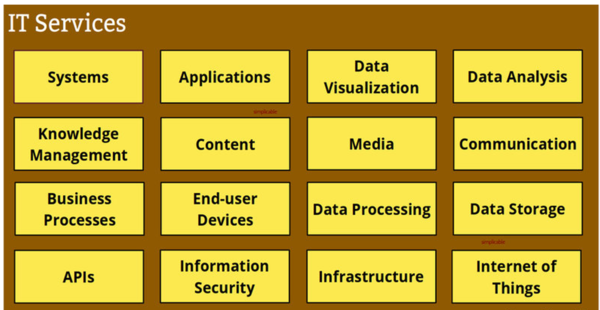In the current fast-paced digital environment, businesses are progressively utilizing outsourced IT solutions to stay relevant and efficient. Central to the heart of this transformation lies cloud-based solutions, which have emerged as critical tools for businesses seeking to streamline their processes and enhance data security. Through harnessing the power of the cloud, companies of various sizes can utilize cutting-edge IT solutions that not only boost productivity but also reduce operating costs.
As digital transformation reshapes the business environment, it becomes crucial for businesses to adapt quickly to changing demands. Managed IT and cloud-based services offer a flexible and adaptive approach that allows companies to focus on their primary activities while leaving the challenges of technology management to professionals. Through integrating cloud solutions into their IT frameworks, organizations can ensure they are not only staying ahead of the competition but also setting themselves for long-term growth.
Advantages of Cloud Computing
One of the primary benefits of cloud solutions is flexibility. Businesses can easily modify their information technology resources based on existing requirements without the need for significant initial investments. Whether a business is experiencing fast expansion or a cyclical shift in demand, cloud services allow for flexible resource allocation. This agility enables companies to respond quickly to market fluctuations, ensuring they have the required services at their disposal.
Another notable benefit is cost efficiency. Cloud solutions can significantly reduce the financial burden associated with managing infrastructure and infrastructure. Businesses can minimize expenses related to power, air conditioning, and physical space, as well as reduce personnel costs for oversight and maintenance. By adopting a pay-per-use model, businesses only pay for the capabilities they need, leading to better financial planning and financial benefits.
Moreover, cloud solutions improve collaboration and productivity. With online IT services, teams can access data and applications from any location, at all times. This accessibility fosters a more responsive working environment, enabling working from home and improving interaction among team members. As a result, employees can work effectively, share information easily, and contribute to initiatives in real time, which can ultimately propel progress and enhance overall company performance.

Key IT Managed Services
One of foundational offerings in IT managed services is remote system oversight. This service involves managing a company's IT infrastructure from a remote location, ensuring that systems are performing at their best. By continuously checking network performance and identifying potential issues before they grow, businesses can limit outages and sustain productivity. This service commonly consists of software updates, patch management, and security monitoring, which helps secure against vulnerabilities.
A further important service is data protection and disaster recovery. In a world more and more reliant on digital information, ensuring that data is properly backed up and can be recovered in the event of a catastrophe is critical. it services in new jersey offer strong backup solutions that systematically save data to protected cloud environments. This not only shields businesses from data loss but also allows for quick recovery, which ensures minimal disruption to operations when unexpected events occur.
Cloud technology play an essential role in boosting the flexibility and scalability of IT managed services. By harnessing cloud technology, businesses can access resources and applications on call, paying just for what they utilize. Managed IT services can assist organizations transition to the cloud, providing experience in cloud management and optimization. This allows businesses to optimize their operations, cut expenses, and focus on their core objectives without getting bogged down by IT management issues.
Emerging Trends in Cloud Computing
The prospects of cloud computing is predicted to be marked by an continuous integration of artificial intelligence and ML tools. As businesses strive to enhance their operations and streamline decision-making processes, the integration of artificial intelligence-powered tools in cloud services will facilitate improved data analysis, efficiency, and predictive insights. IT service providers will need to transform and evolve, ensuring that they can leverage these advancements to provide creative solutions to their clients.
Another significant trend is the emergence of multi-provider and hybrid cloud strategies. Organizations are realizing the value of adaptability and mitigation in their IT infrastructure. By utilizing multiple cloud platforms, organizations can prevent vendor limitations, control costs, and achieve increased redundancy. IT consultants will increasingly prioritize on managing and overseeing these intricate environments, offering clients with bespoke solutions that maximize performance and security.
In conclusion, the focus on green practices in cloud computing will continue to expand. As climate challenges become more prominent, cloud platforms are investing in environmentally-friendly practices and practices to minimize their carbon footprint. Managed IT services will play a crucial role in guiding businesses toward responsible choices, supporting them transition to efficient cloud solutions that lower energy consumption and support corporate social responsibility objectives.
